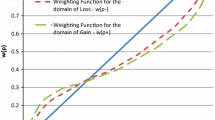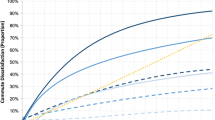Abstract
Managed lanes (MLs) are a tool to more efficiently operate segments of a freeway. As ML prevalence increases in the United States of America, it is important to understand travel behavior in a ML setting (i.e., lane choices and carpooling decisions). Socio-demographic and trip data, along with travel time and toll, have been commonly used in this endeavor. However, there are some travelers who pay to use the ML despite there being little to no improvement in travel time over the adjacent general purpose lanes. This gives rise to the possibility that psychological traits and characteristics are a greater influence on ML use than even travel time savings for some travelers. This research examined this issue through a set of largely transportation-framed psychological items. After an initial creation and refining process, 25 psychological items were included in a survey advertised in five cities with MLs. In addition to psychological items, trip and demographic questions, and three SP questions were included in the online survey. Mixed logit models were estimated based on survey responses obtained from three study areas. Models that included psychological items performed better (in terms of adjusted rho squared value and percent correctly predicted values) than models with only trip and demographic variables. Likewise, models including psychological items plus trip and demographic data performed best. This information may be useful for traffic and revenue estimating firms interested in potentially including psychological items in future ML surveys intended to facilitate better estimation of ML use.

Similar content being viewed by others
References
Anderson, J.C., Gerbing, D.W.: Predicting the performance of measures in a confirmatory factor analysis with a pretest assessment of their substantive validities. J. Appl. Psychol. 76, 732–740 (1991)
Arthur Jr., W., Doverspike, D.: Locus of control and auditory selective attention as predictors of driving accident involvment: a comparative longitudinal investigation. J. Saf. Res. 23(2), 73–80 (1992)
Arthur Jr., W., Doverspike, D.: Predicting motor vehicle crash involvement from a personality measure and a driving knowledge test. J. Prev. Interv. Community 22(1), 35–42 (2001)
Arthur Jr., W., Barrett, G.V., Alexander, R.A.: Prediction of vehicular accident involvement—a meta-analysis. Hum. Perform. 4(2), 89–105 (1991)
Burris, M.W., Sadabadi, K.F., Mattingly, S.P., Mahlawat, M., Li, J., Rasmidatta, I., Saroosh, A.: Reaction to the managed land concept by various groups of travelers. Transp. Res. Rec. J. Transp. Res. Board 1996, 74–82 (2007)
Burris, M., Nelson, S., Kelly, P., Gupta, P., Cho, Y.: Willingness to pay for high-occupancy toll lanes-empirical analysis from I-15 and I-394. Transp. Res. Rec. J. Transp. Res. Board 2297, 47–55 (2012a)
Burris, M., Arthur Jr., W., Devarasetty, P.C., McDonald, J., Munoz, G.J.: Understanding travel behavior: the psychology behind managed lane use, p. 2012. Texas Transportation Institute, College Station (2012b)
Chliaoutakis, J.E., Demakakos, P., Tzamalouka, G., Bakou, V., Koumaki, M., Darviri, C.: Aggressive behavior while driving as predictor of self-reported car crashes. J. Saf. Res. 33, 431–443 (2002)
Clarke, S., Robertson, I.T.: A meta-analtyic review of the big five personality factors and accident involvement in occupational and non-occupational settings. J. Occup. Organ. Psychol. 78, 355–376 (2005)
Collier, T., Goodin, G.: Managed Lanes: A Cross-Cutting Study. Texas Transportation Institute, College Station (2004)
Dahlen, E.R., Martin, R.C., Ragan, K., Kuhlman, M.M.: Driving anger, sensation seeking, impulsiveness, and boredom proneness in the prediction of unsafe driving. Accid. Anal. Prev. 37, 341–348 (2005)
Elander, J., West, R., French, D.: Behavioral correlates of individual differences in road-traffic crash risk: an examination of methods and findings. Psychol. Bull. 113, 279–294 (1993)
Fischer, P., Kubitzki, J., Guter, S., Frey, D.: Virtual driving and risk taking: Do racing games increase risk-taking cognitions, affect, and behaviors? J. Exp. Psychol. 13, 22–31 (2007)
Florence, D.: Using psychology to understand managed lane use, pp. 1–36. Undergraduate Transportation Scholars Program, Texas A&M University, College Station (2014)
Green, L.L., Burris, M.W.: Can psychological questions help predict managed lane use? Transp. Res. Rec. J. Transp. Res. Board 2470, 152–160 (2014)
Green, L.L.: The Influence of Psychological Characteristics on Managed Lane Use: A Further Examination. Ph.D. Dissertation, Department of Civil Engineering, Texas A&M University, College Station (2015)
Hensher, D.A., Rose, J.M., Greene, W.H.: Applied Choice Analysis: A Primer. Cambridge University Press, New York (2005)
Johansson, M.V., Heldt, T., Johansson, P.: The effects of attitudes and personality traits on mode choice. Transp. Res. Part A 40, 507–525 (2006)
Jonah, B.A.: Accident risk and risk-taking behaviour among young drivers. Accid. Anal. Prev. 18(4), 255–271 (1986)
Kwon, J., Varaiya, P.: Effectivenss of California’s high occupancy vehicle (HOV) system. Transp. Res. Part C 16, 98–115 (2008)
Laerd Statistics: Kruskal–Wallis H Test Using SPSS Statistics. https://statistics.laerd.com/spss-tutorials/kruskal-wallis-h-test-using-spss-statistics.php (2015a). Accessed 27 March 2015
Laerd Statistics: One-Way ANOVA in SPSS Statistics. https://statistics.laerd.com/spss-tutorials/one-way-anova-using-spss-statistics.php (2015b). Accessed 26 March 2015
Laerd Statistics: Ordinal Regression Using SPSS Statistics. https://statistics.laerd.com/spss-tutorials/ordinal-regression-using-spss-statistics.php (2015c). Accessed 23 January 2015
Lev, D., Hershkovitz, E., Yechiam, E.: Decision making and personality in traffic offenders: a study of Israeli drivers. Accid. Anal. Prev. 40(1), 223–230 (2008)
Malone, K.: Trying to Free Up 95 Express, FDOT Prices ‘Lexus Lanes’ At Lamborghini Rates. WLRN-Miami Herald News. Miami-Date; 28 Feb 2014
Neuberg, S.L., Newsom, J.T.: Personal need for structure: individual differences in the desire for simple structure. J. Pers. Soc. Psychol. 65, 113–131 (1993)
Pezzotta, P.: Comment Thread, “Re: “Lexus” Lane Pricing Goes Lamborghini to Maintain Free Flow”. TRB Transportation Economics Committee (2014)
Rundmo, T., Iversen, H.: Risk perception and driving behaviour among adolescents in two Norwegian counties before and after a traffic safety campaign. Saf. Sci. 42, 1–21 (2004)
Schmit, M.J., Stierwalt, S.L., Ryan, A.M., Powell, A.B.: Frame-of-reference effects on personality scale scores and criterion-related validity. J. Appl. Psychol. 80(5), 607–620 (1995)
Taubman-Ben-Ari, O., Mikulincer, M., Gillath, O.: The multidimensional driving style inventory-scale construct and validation. Accid. Anal. Prev. 36, 323–332 (2004)
Train, K.: Discrete Choice Methods with Simulation; Chapter 6. Mixed Logit, pp. 134–150. Cambridge University Press, Cambridge (2009)
Weinstein, A., Sciara, G.-C.: Assessing the Equity Implications of Hot Lanes—A Report Prepared for the Santa Clara Valley Transportation Authority (2004)
Acknowledgements
The authors gratefully acknowledge funding received through an Eisenhower Fellowship and the Southwest University Transportation Center (SWUTC). We would also like to thank Prem Chand Devarasetty; Thomas Wehrly; and Gene Hawkins for their guidance and input at various stages of the research effort. Several transportation professionals aided in advertising the survey; special thanks to Grant Schultz (SLC), John Haigwood (SLC), Kenneth Buckeye (Minn), Bobbie Dahlke (Minn), Michael McGurk (DC), Nic Barr (DC), Emily Pace Glad (Seattle), Tyler Patterson (Seattle), and Stephanie Wiggins (Los Angeles). Finally, the paper reviewers provided excellent comments and suggestions and we thank them for their time and effort helping to improve our paper.
Author information
Authors and Affiliations
Corresponding author
Ethics declarations
Conflict of interest
The authors declare that they have no conflict of interest.
Additional information
Publisher's Note
Springer Nature remains neutral with regard to jurisdictional claims in published maps and institutional affiliations.
Rights and permissions
About this article
Cite this article
Green, L.L., Burris, M.W., Florence, D. et al. Psychological items: a useful addition in modeling travel behavior on managed lanes. Transportation 48, 215–237 (2021). https://doi.org/10.1007/s11116-019-10049-z
Published:
Issue Date:
DOI: https://doi.org/10.1007/s11116-019-10049-z




